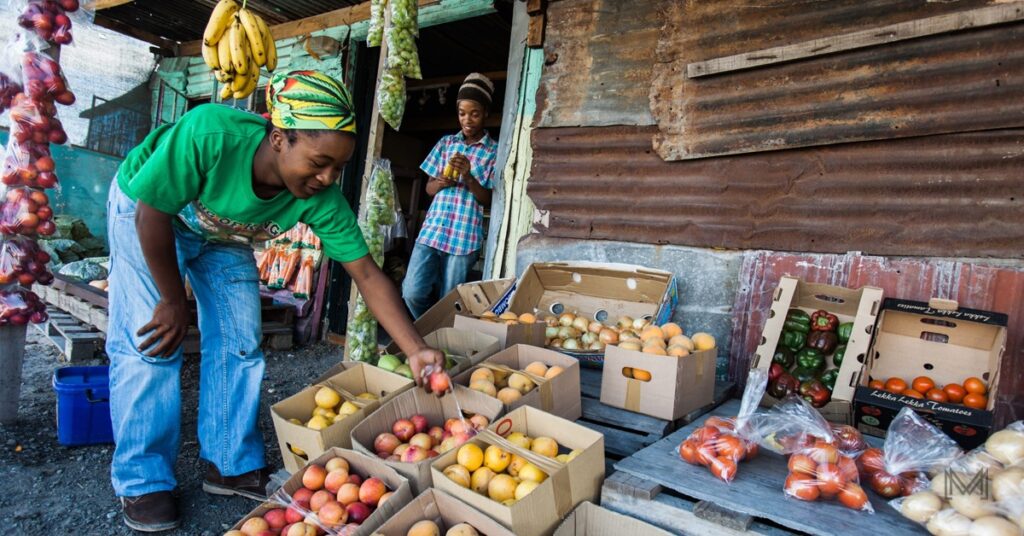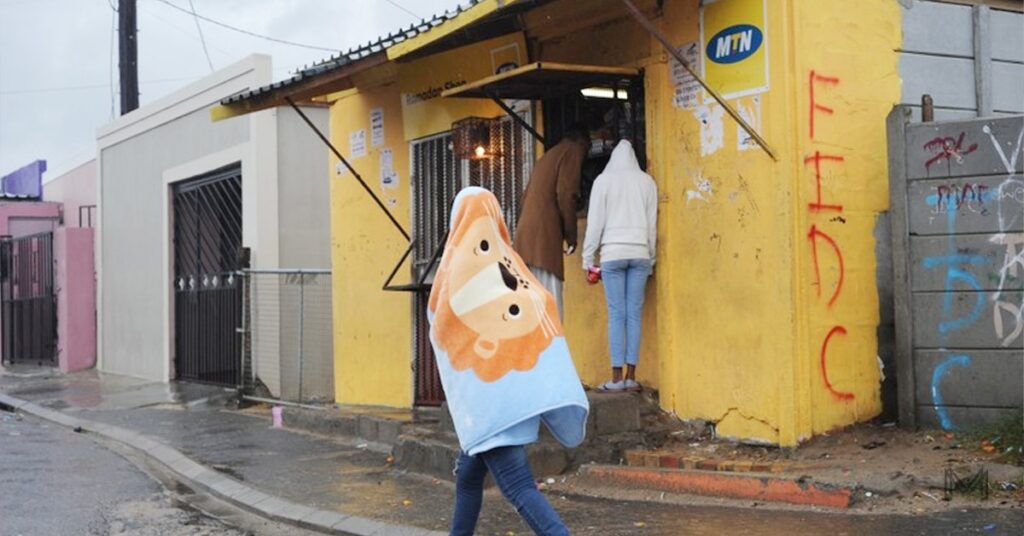Immigrants Dominating South African Retail: Spaza Shops
Why immigrants are dominating ubiquitous spaza shop, a small corner store, has become a staple of South African life, serving as a vital source of convenience and goods for countless communities.
However, a recent shift in ownership patterns has sparked debate and economic analysis: the rise of immigrant-run spaza shops. While the reasons behind this trend are complex and multifaceted, a closer examination reveals a compelling narrative of entrepreneurship, adaptability, and the pursuit of opportunity.
A Tale of Two Spaza Models
The traditional South African spaza shop, often a home-based venture, typically operated on a smaller scale, catering to immediate local needs with limited stock. In contrast, foreign-owned spaza shops, often housed in rented premises, demonstrate a distinct business model characterised by larger investments, strategic procurement, and a focus on customer loyalty.
The success of immigrant-run spaza shops highlights the power of adaptability and a customer-centric approach in a competitive market.
Ownership Dynamics: A Shift in the Paradigm
The ownership structure of spaza shops reveals a striking difference between South African and immigrant entrepreneurs. Women operate a significant number of South African-owned spazas, while men own and manage almost all foreign-run shops. Various factors, such as cultural norms, social expectations, and the inherent challenges women face in the business world, contribute to this disparity.
The ownership model itself is another significant difference. South African spazas are predominantly single-owner operations, whereas foreign-run shops often operate through collective ownership models, such as shareholding agreements or a single entrepreneur managing multiple stores. This collective approach allows for pooling resources, leveraging economies of scale, and fostering a sense of community among business owners.

Capital Investment: A Foundation for Success
One of the most striking differences between South African and immigrant spaza shop owners is the scale of their initial investment. The Small Enterprise Foundation (SEF) conducted research that shows foreign entrepreneurs typically invest an average of R45,000 to start their businesses, while their South African counterparts typically invest only R1,500 to R5,000. This significant capital disparity enables foreign-owned spazas to stock a wider range of goods, attract customers with more diverse offerings, and negotiate better prices with wholesalers.
The collective ownership model, coupled with strong ethnic business networks, allows foreign spaza owners to leverage their collective purchasing power. They form buying collectives, often based on shared ethnicities, enabling them to secure better deals from wholesalers and even establish direct supply linkages with manufacturers. This strategic approach provides them with access to lower unit transaction costs, including transportation and labor, which further enhances their competitive edge.
Stock Procurement: Creating a Sustainable Supply Chain
The procurement strategies employed by foreign-run spaza shops are a testament to their adaptability and business acumen. They have successfully developed a semi-cooperative supply system, which allows them to procure goods from wholesalers and manufacturers at competitive prices. This network fosters collaboration, ensuring an uninterrupted supply of merchandise for all participating stores.
In stark contrast, South African spaza owners, operating as sole traders, find themselves at a disadvantage when it comes to negotiating bulk purchases and securing favourable terms from suppliers. This lack of collective bargaining power has forced many South African spaza owners to close shop or focus on niche markets, such as take-away food and liquor retailing, where they can sustain a competitive advantage.
By fostering collaboration between South African and immigrant entrepreneurs, we can create a more inclusive and prosperous retail sector for all.
Business Operations: Maximising Efficiency and Adaptability
Foreign-owned spaza shops demonstrate a distinct approach to business operations, prioritising full-time operations and employing staff beyond family members. This strategic move allows them to extend their trading hours, often from 6 a.m. to 10 p.m., catering to the demands of a wider customer base.
Foreign-owned shops aim to maximise revenue through extended operating hours, whereas South African spazas often operate part-time to supplement other household incomes. They employ casual workers, often in conditions that resemble bonded labour, to minimise labour costs and ensure efficient operation around the clock.

Product Diversification: Catering to Diverse Needs
Foreign-run spaza shops’ astute understanding of market niches contributes to their success. They strategically diversify their product offerings, catering to specific customer needs and preferences. Foreign spaza shops often expand beyond basic groceries, selling alcohol and installing arcade games, diversifying their revenue streams and attracting a wider customer base.
South African spaza owners, often restricted by limited capital and resources, have struggled to adapt to these evolving market dynamics. They have not yet fully capitalised on the potential for product diversification, leaving a significant market share to foreign-owned shops.
Beyond Business: Navigating Challenges and Opportunities
While the success of immigrant-run spaza shops is undeniable, it is important to acknowledge the challenges they face. Issues such as xenophobia, discrimination, and restrictive regulations continue to pose obstacles to their growth and prosperity.
However, the resilience and entrepreneurial spirit of these immigrants, coupled with their willingness to adapt and innovate, have propelled them to the forefront of the South African retail landscape. Their success stands as a testament to the power of hard work, resourcefulness, and community support.
A Call for Dialogue and Collaboration
The rise of immigrant-run spaza shops has sparked important conversations about competition, economic inclusion, and the role of small businesses in South African society. While debates about the impact of immigration on the economy and social fabric continue, it is crucial to foster a spirit of dialogue and collaboration.
South African spaza owners and immigrant entrepreneurs can learn from each other, sharing best practices, navigating regulations, and advocating for policies that promote a vibrant and inclusive retail sector. By embracing collaboration, we can create a more equitable and prosperous environment for all small businesses, fostering economic growth and community empowerment.
The Future of the Spaza Shop
As the South African economy continues to evolve, the role of the spaza shop will undoubtedly remain significant. The future of this vital sector lies in embracing innovation, harnessing the power of technology, and forging strong partnerships between South African and immigrant entrepreneurs. Working together, we can ensure that the spaza shop continues to thrive as a vital pillar of our communities, contributing to economic development and fostering social cohesion.

FAQ’s – Immigrants Are Dominating the South African Retail
What are the main differences between South African and immigrant-owned spaza shops?
The main differences lie in capital investment, ownership structure, procurement strategies, and business operations. Immigrant-owned shops typically invest more, operate under collective ownership, leverage strong buying collectives, and have longer operating hours with more staff.
Why are immigrant spaza shop owners able to secure better deals from suppliers?
They have the advantage of collective purchasing power through buying collectives, allowing them to negotiate better prices and terms with wholesalers and manufacturers. This reduces costs and gives them a competitive edge over individual South African spaza owners.
Is the success of immigrant spaza shop owners a threat to South African small businesses?
While competition exists, it’s important to see this as an opportunity for collaboration. South African spaza owners can learn from the strategies of immigrant entrepreneurs and work together to improve the sector’s overall competitiveness.
Are there any challenges faced by immigrant spaza shop owners in South Africa?
Yes, they face challenges such as xenophobia, discrimination, and restrictive regulations. However, their resilience and entrepreneurial spirit have helped them overcome these obstacles and thrive.
What is the potential for collaboration between South African and immigrant spaza shop owners?
Collaboration can be beneficial for both parties. They can share knowledge, access shared resources, and advocate for better policies that support all small businesses in the sector. This can lead to a stronger and more inclusive retail landscape in South Africa.


